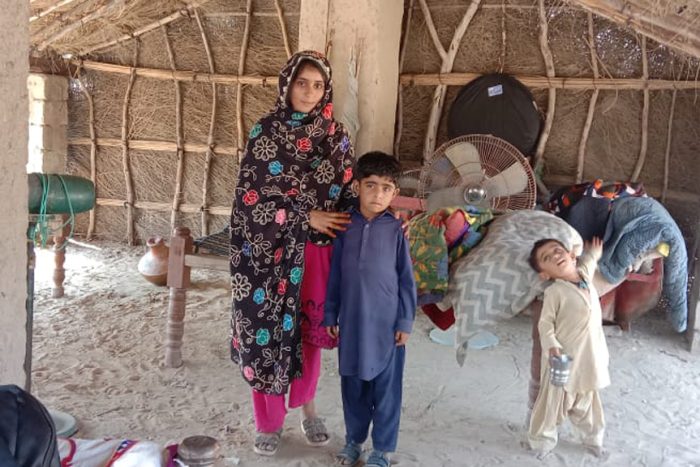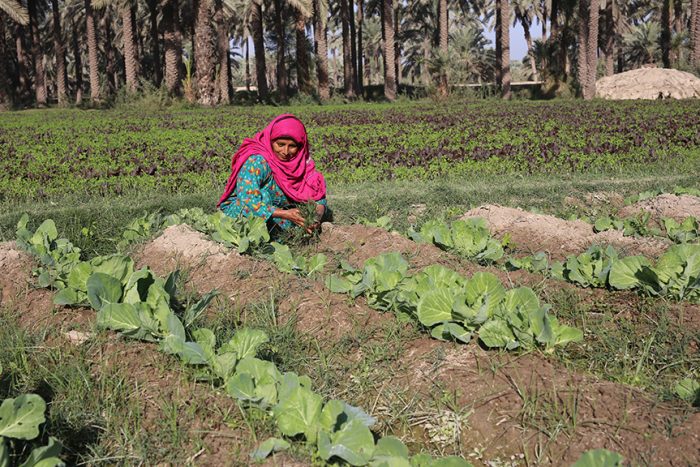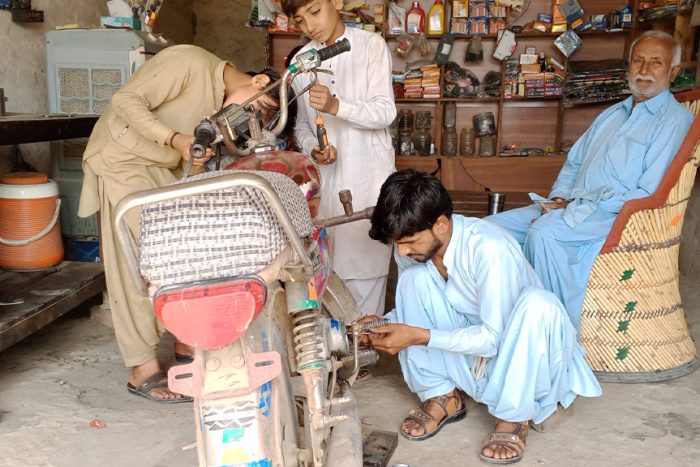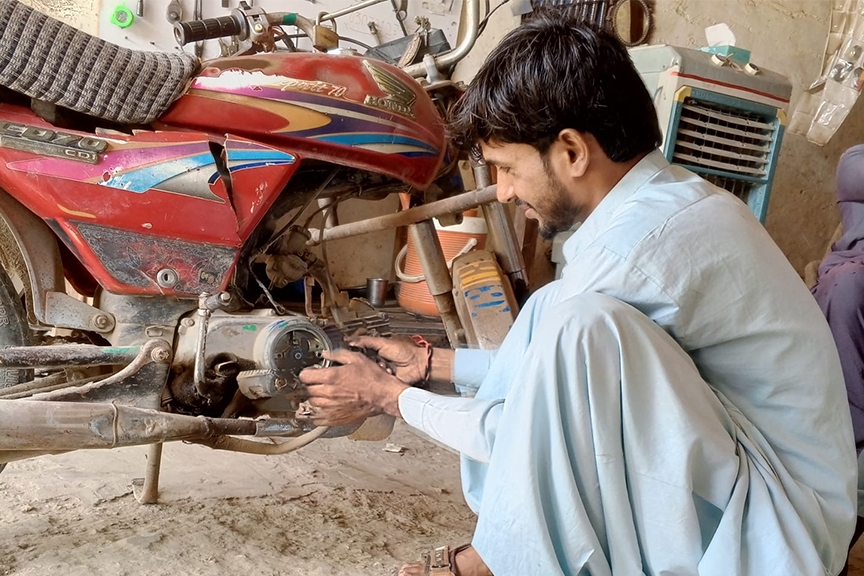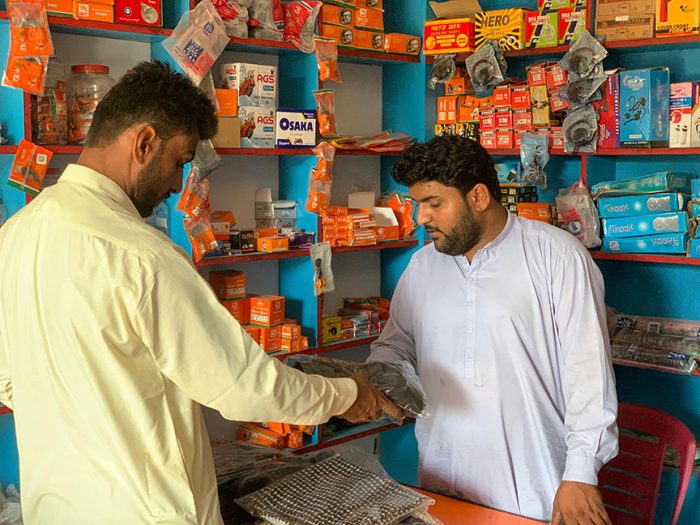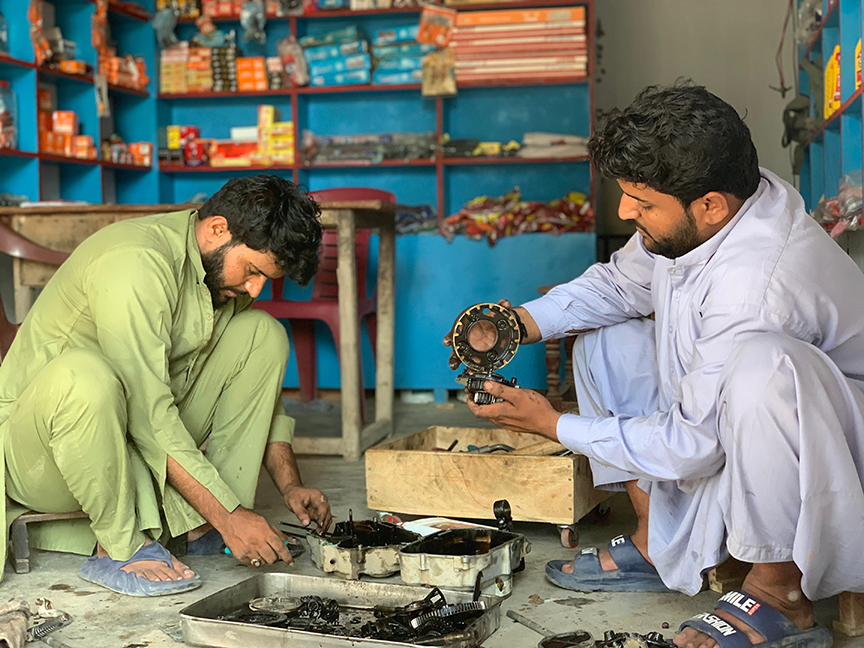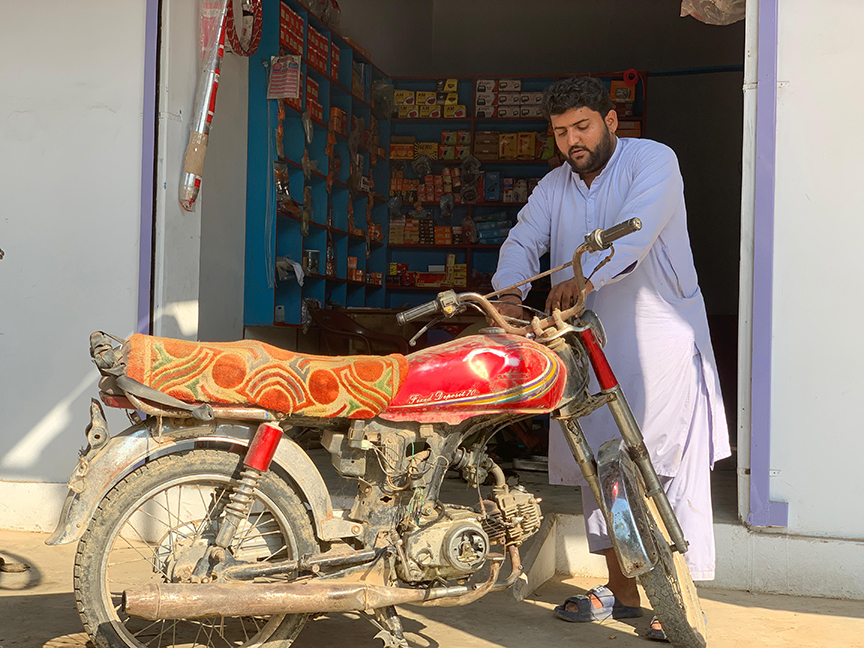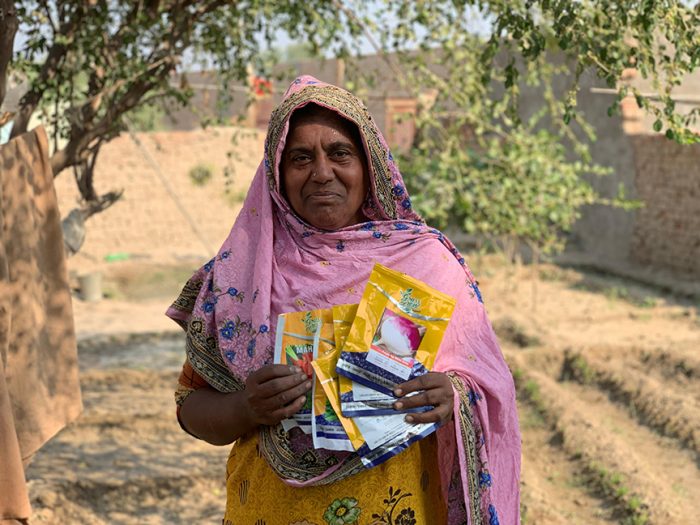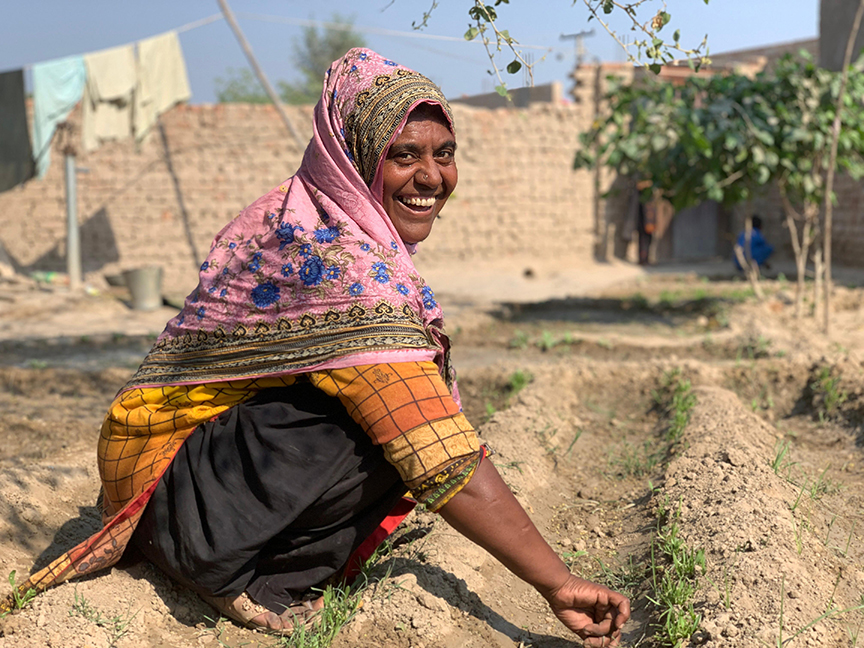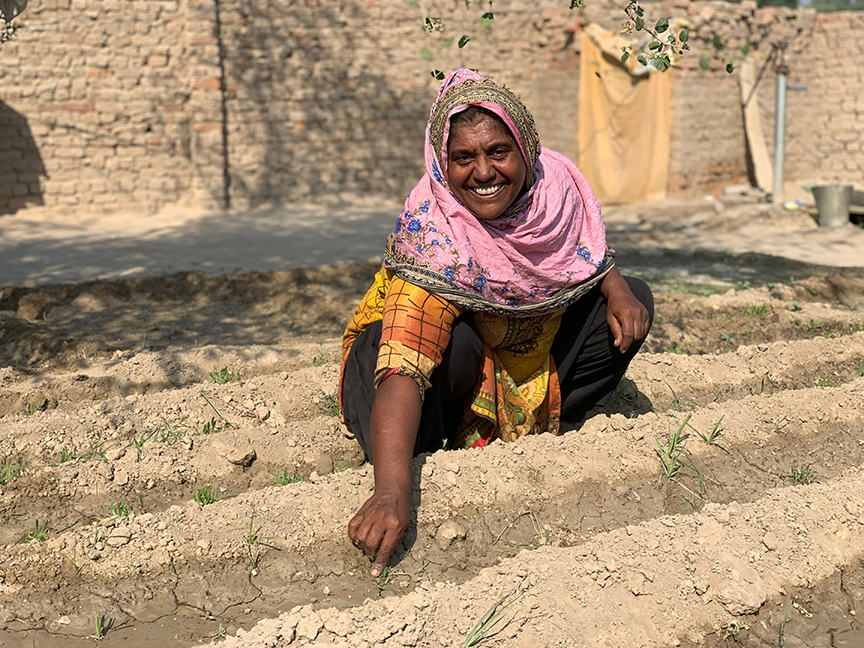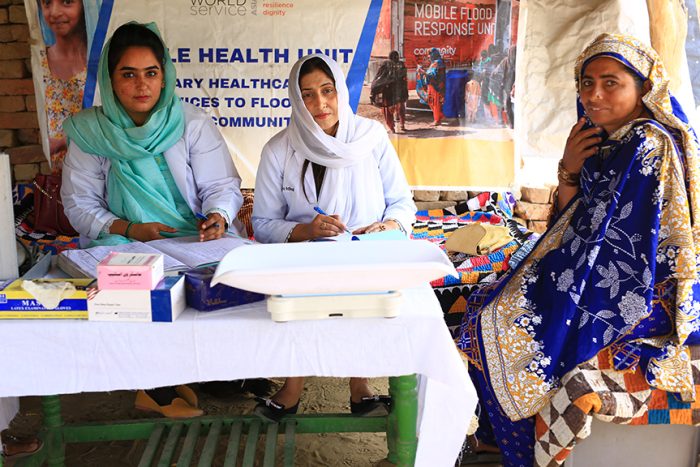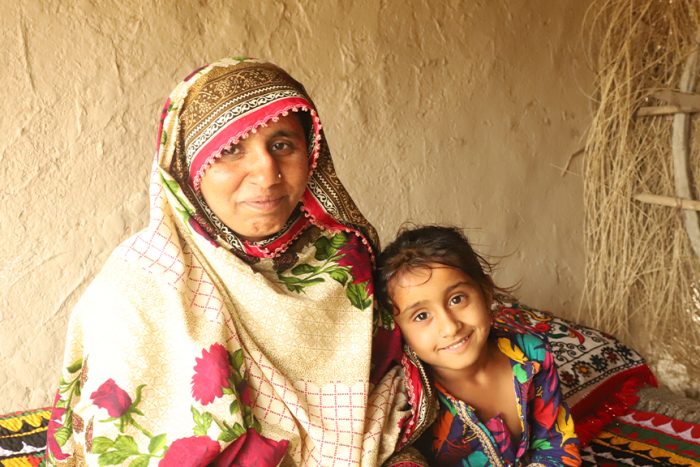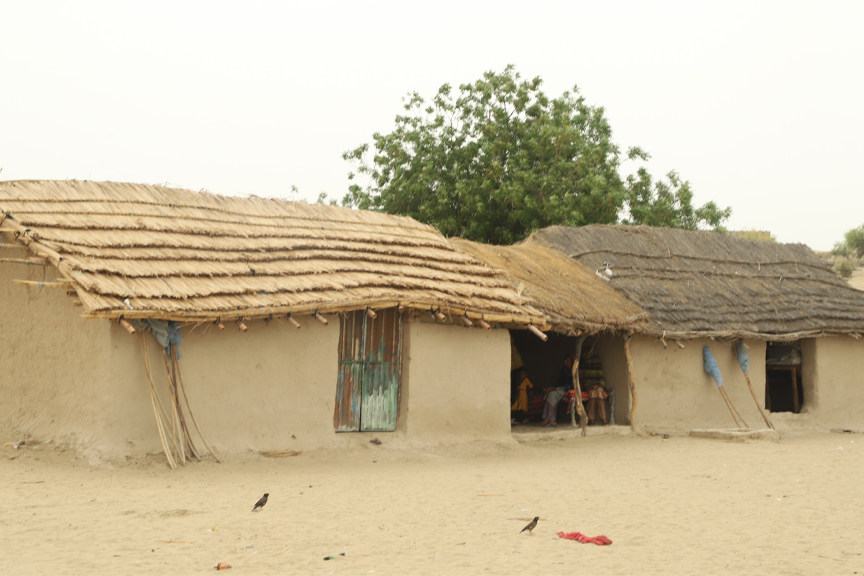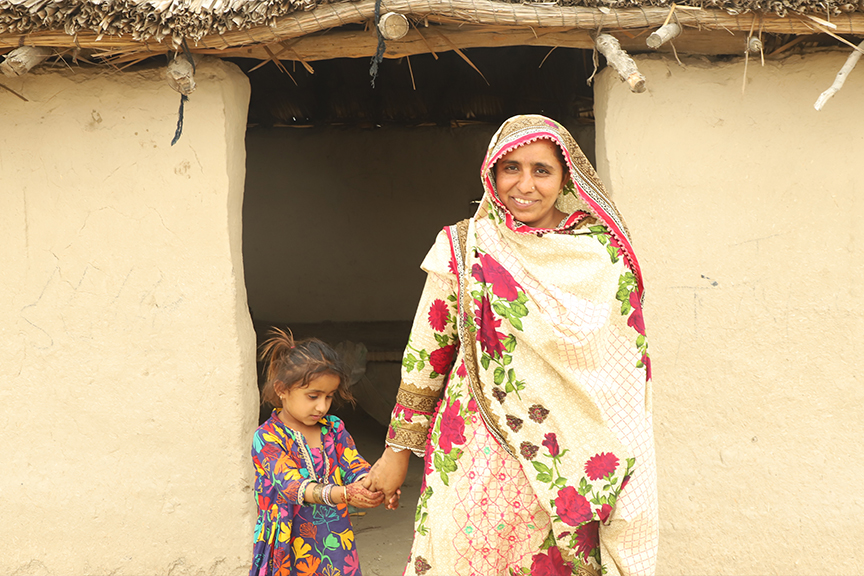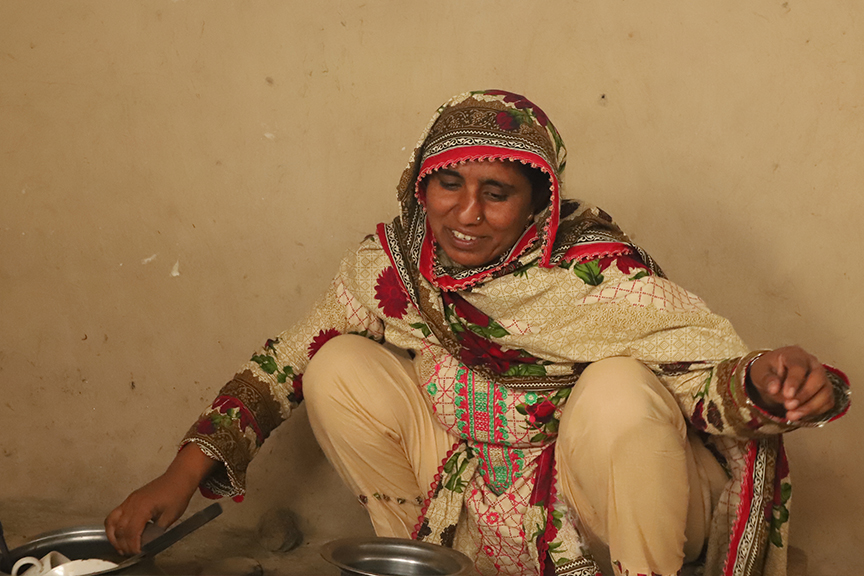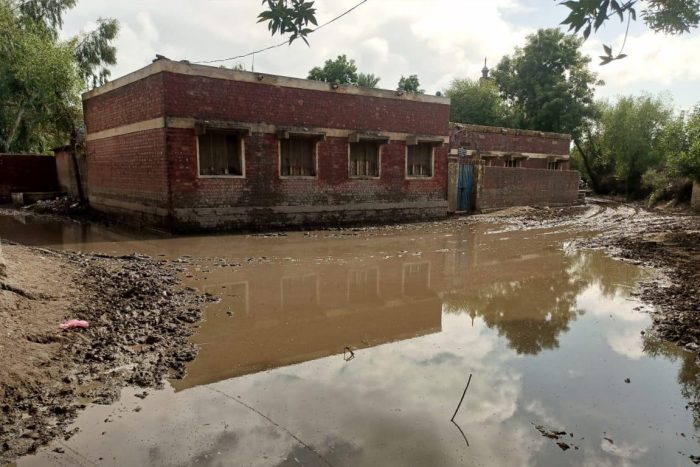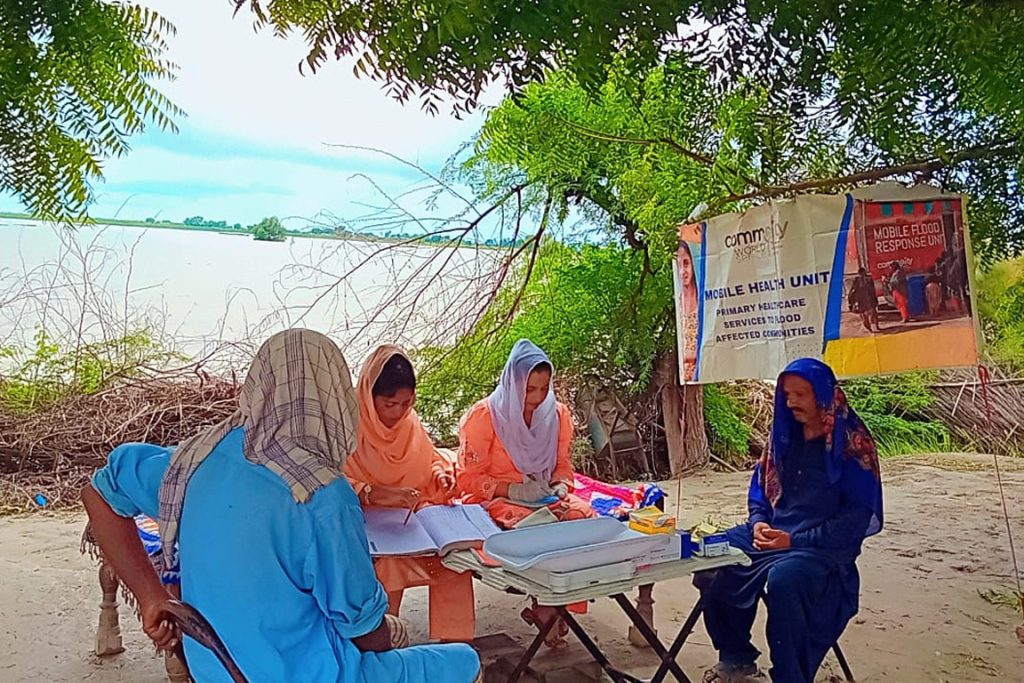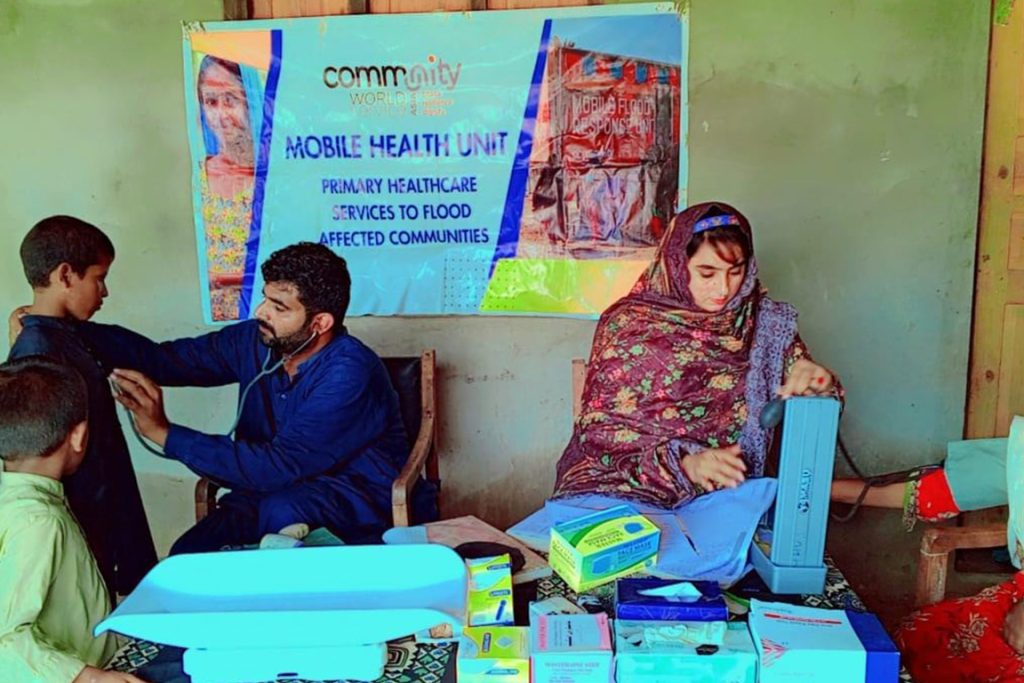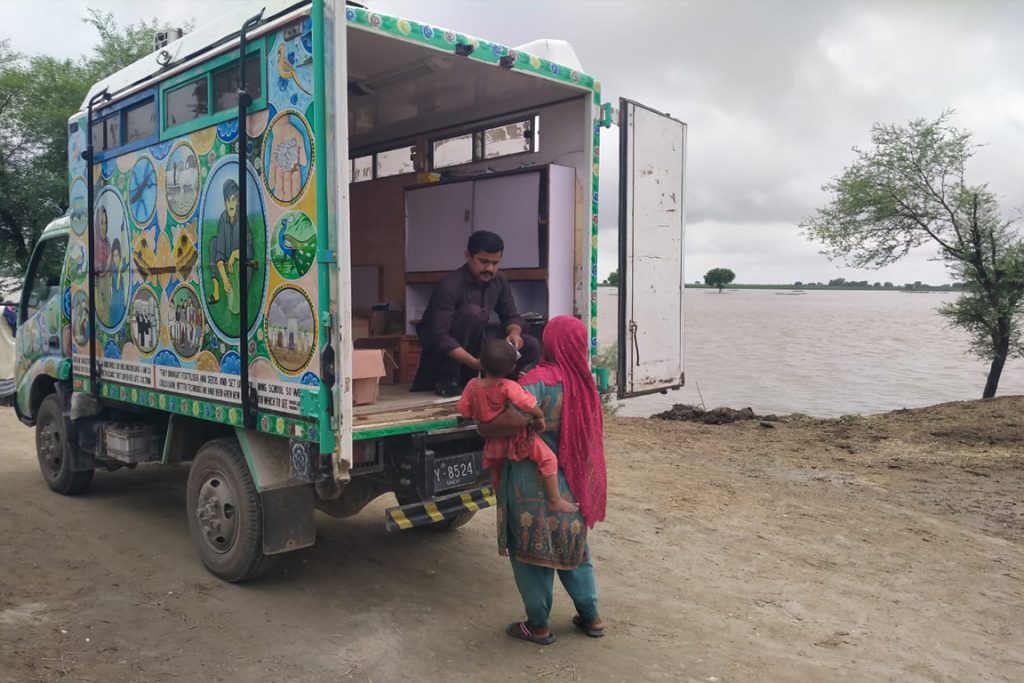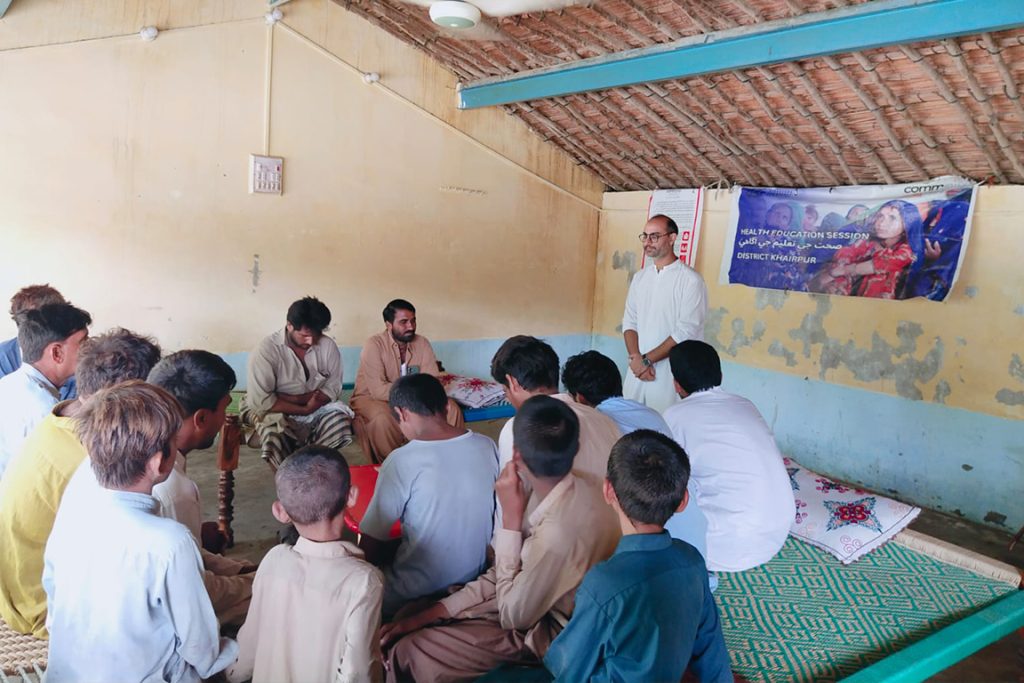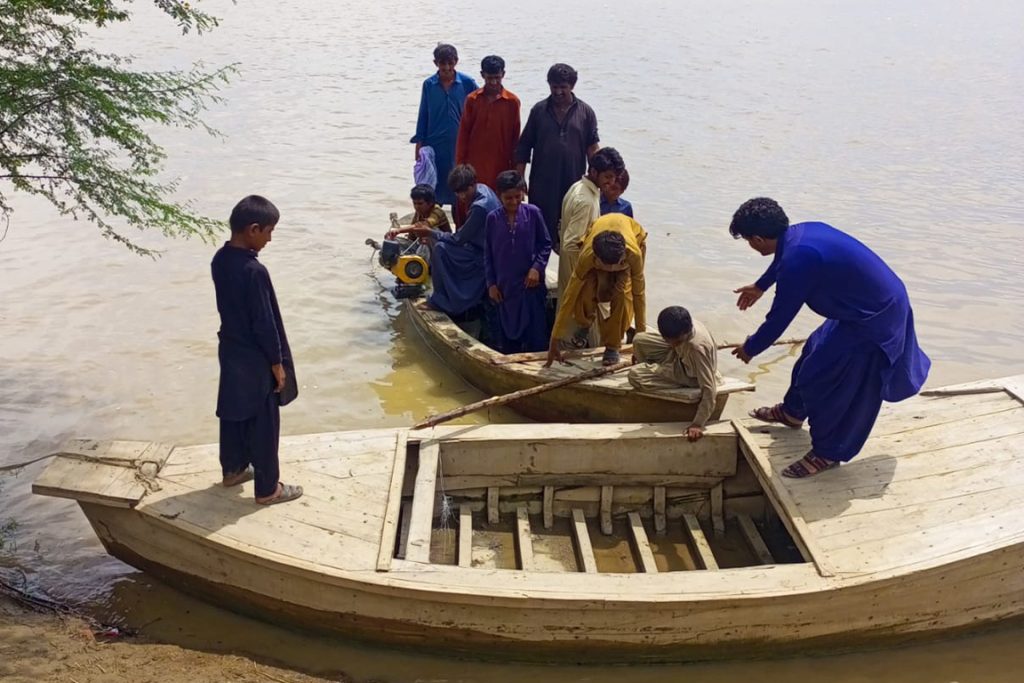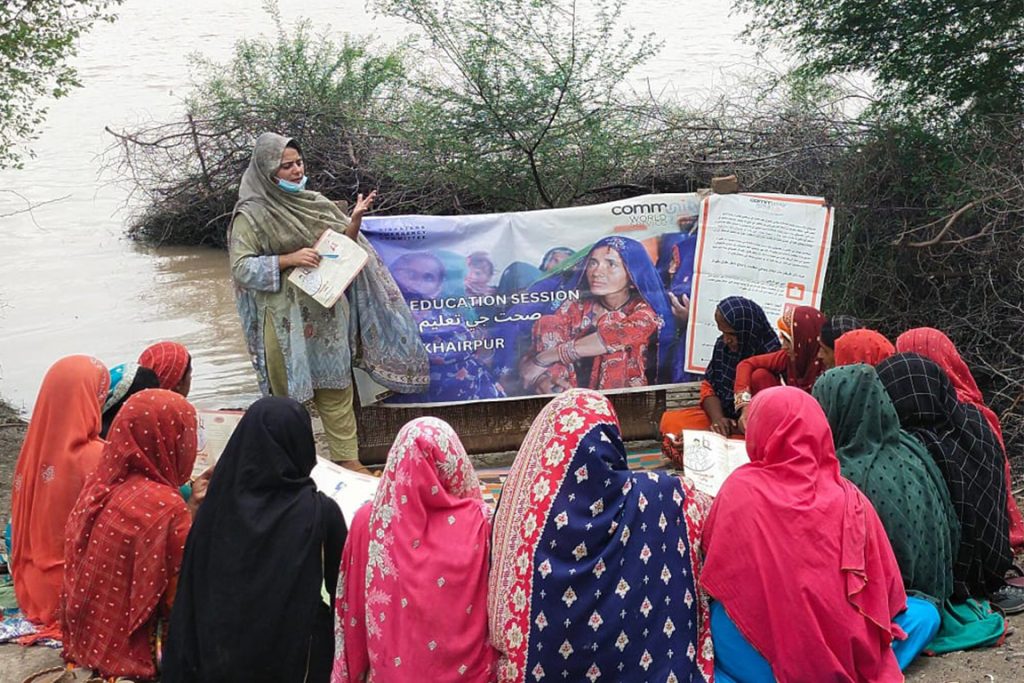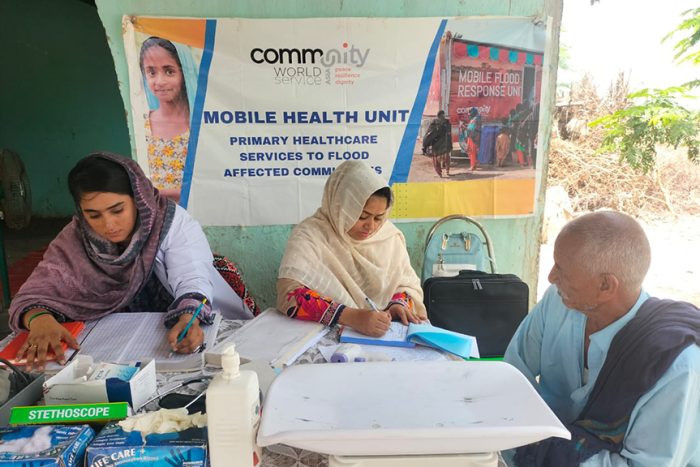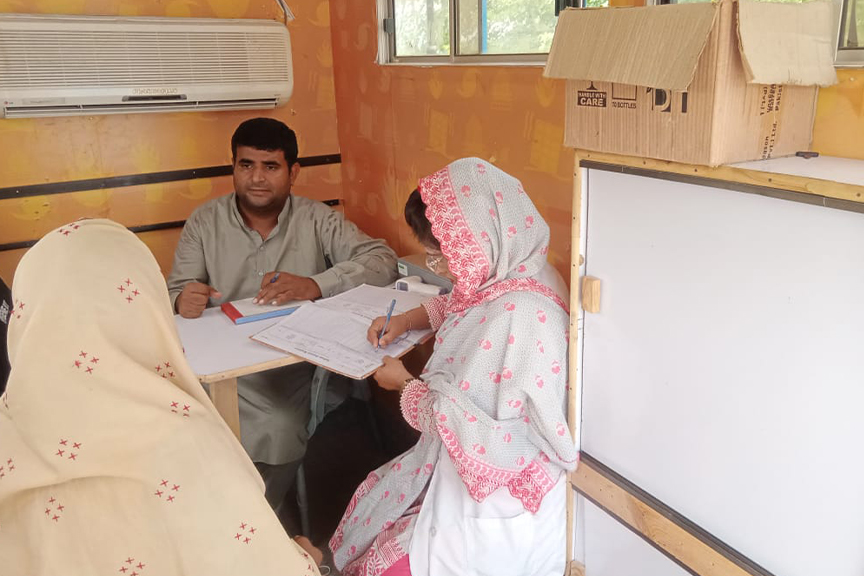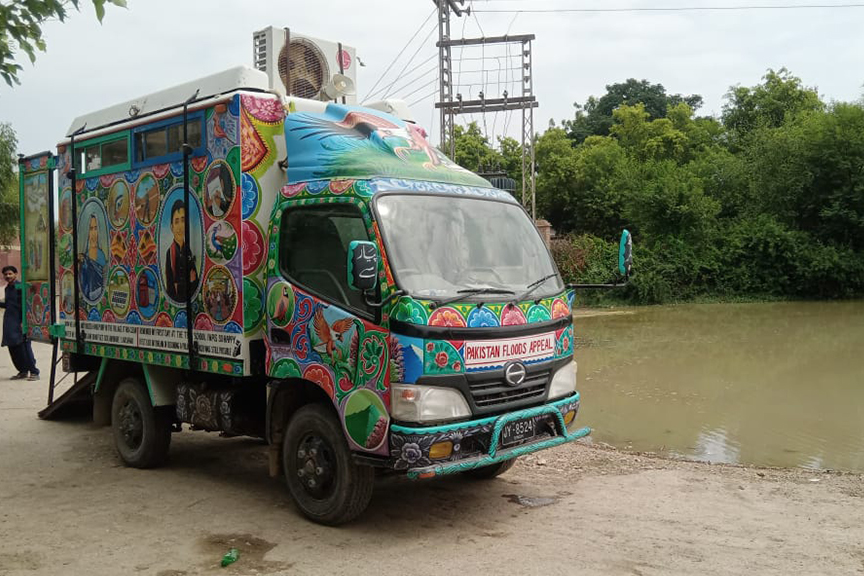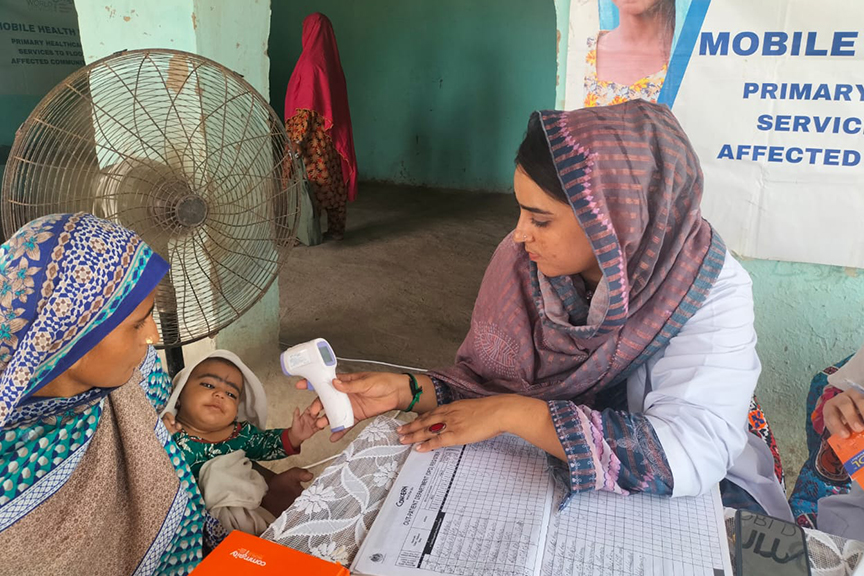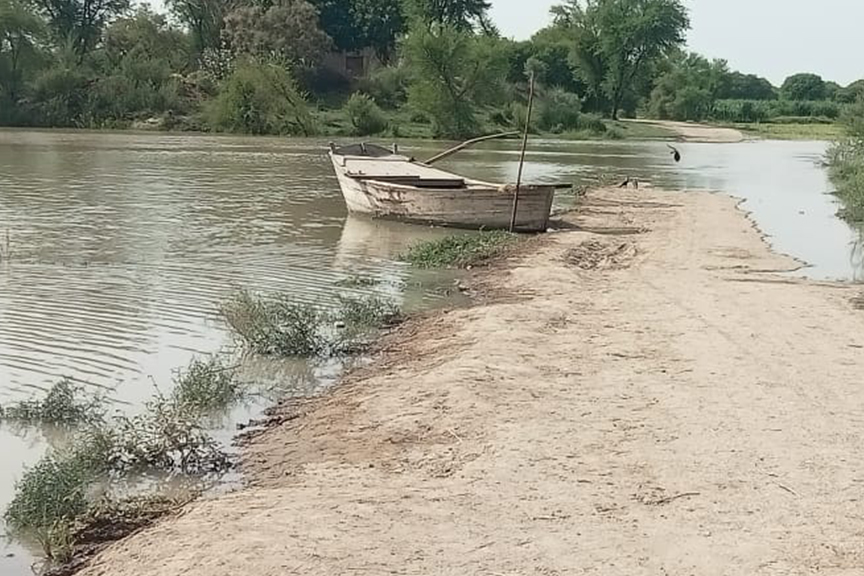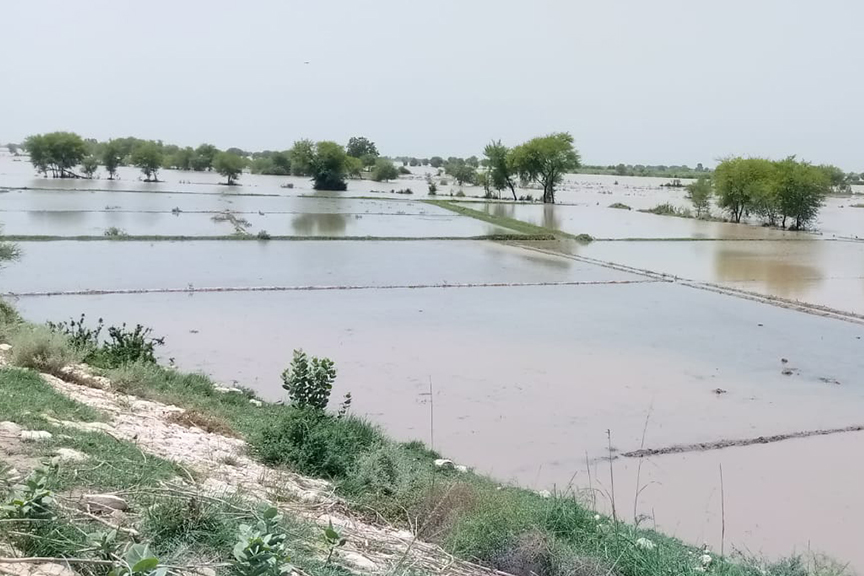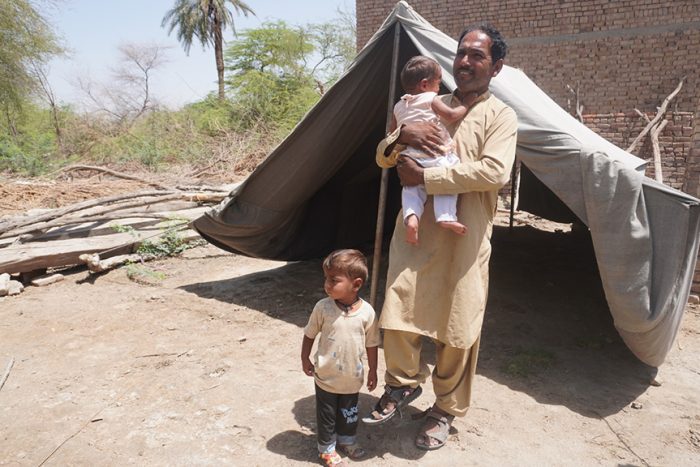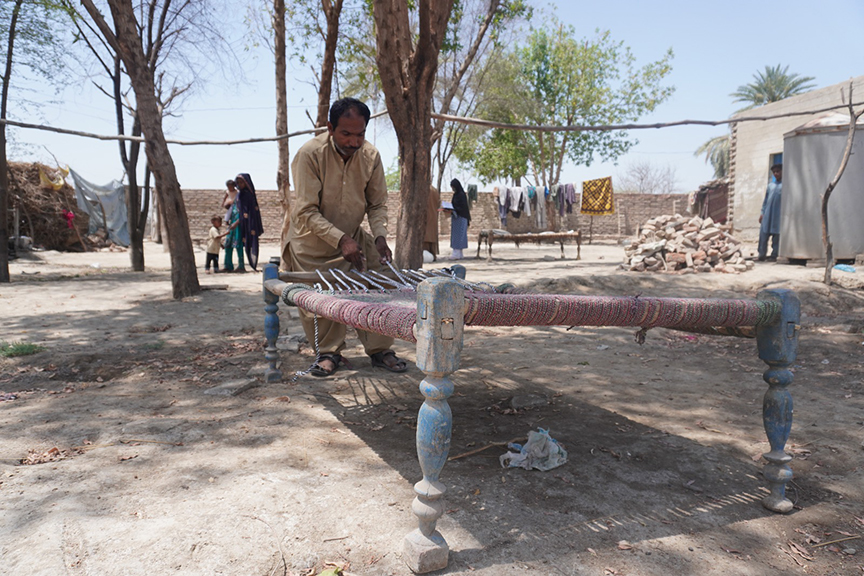Rahman, a young boy living in Ghulam Muhammad Bhambhro village of District Khairpur, Sindh, is a participant of a healthcare initiative led by Community World Service Asia (CWSA) and supported by the Catholic Agency for Overseas Development (CAFOD). His story highlights the impact of accessible and quality healthcare for marginalised families.
Seven-year-old Rahman is Punhal and Heer’s second child. The parents live hand-to-mouth on 1.5 acres of fertile land with their four children. Their modest income and lack of resources make it nearly impossible to meet the food security needs of the family, let alone address emergencies. Rehman resides in the desert region of Taluka Nara, an area severely impacted by climate change. In May, June, July, and August 2024, the region experienced intense heat waves that further exacerbated the challenges faced by its inhabitants.
The family’s lives were upended when Rahman suffered severe burns after accidentally falling into a fire. The severe burns along his back were quite worrisome for his parents. With no savings and limited options, they took him to a private dispensary thrice, spending a borrowed sum of PKR 5,000 (approximately USD 18), but Rahman’s condition did not improve.
Desperate and running out of options, the family learned about the Maternal, Newborn, and Child Health (MNCH) Centre at Rural Health Centre (RHC) Nara Gate (in the same union council as their village). They met Khursheed, a staff nurse at the centre who carefully reviewed Rahman’s medical history and prescribed a new medication. For the first time, Rahman’s condition began to improve within a week. By the second visit, his parents were surprised by his swift recovery.
“We were worried about his health, but the free medication and quality care at Nara Gate helped him recover within just one week,” Rahman’s parents remarked. “We were struggling to afford treatment, but CWSA’s intervention saved us from financial ruin. Rahman’s recovery is a testament to their dedication and care.”
The family’s initial hesitation stemmed from their distrust of government healthcare facilities, often viewed as poorly equipped and understaffed. However, their experience at RHC Nara Gate changed these assumptions. The facility provided free treatment and delivered services with dignity and respect.
This positive experience inspired the family to advocate for the facility within their community. Rahman’s recovery encouraged others to trust and utilise the healthcare services at RHC Nara Gate.
Since CWSA revitalised RHC Nara Gate in March 2023, it has served as a lifeline for the community. The centre, operational five days a week from 9:00 AM to 2:00 PM, offers essential services such as primary healthcare and MNCH programs. In partnership with the Catholic Agency for Overseas Development (CAFOD), CWSA has provided healthcare services and free medication to over 15,942 patients between August and October 2024, transforming lives in Taluka Nara.
Rahman has now recovered and is in good health. He has returned to school and enjoys playing with his siblings and friends in the village. His parents, once burdened with worry, now dream of a brighter future for their son.
“We want him to continue his education and build a better life for himself,” said his father with a hopeful smile.
Rahman’s story highlights the power of accessible, quality healthcare to save lives and restore faith in public systems. Owing to CWSA and its partners’ efforts, RHC Nara Gate has become a trusted resource for the community, embodying the promise of dignity, respect, and equity in healthcare. Families like Rahman’s now have hope that even in times of crisis, help is within reach.





